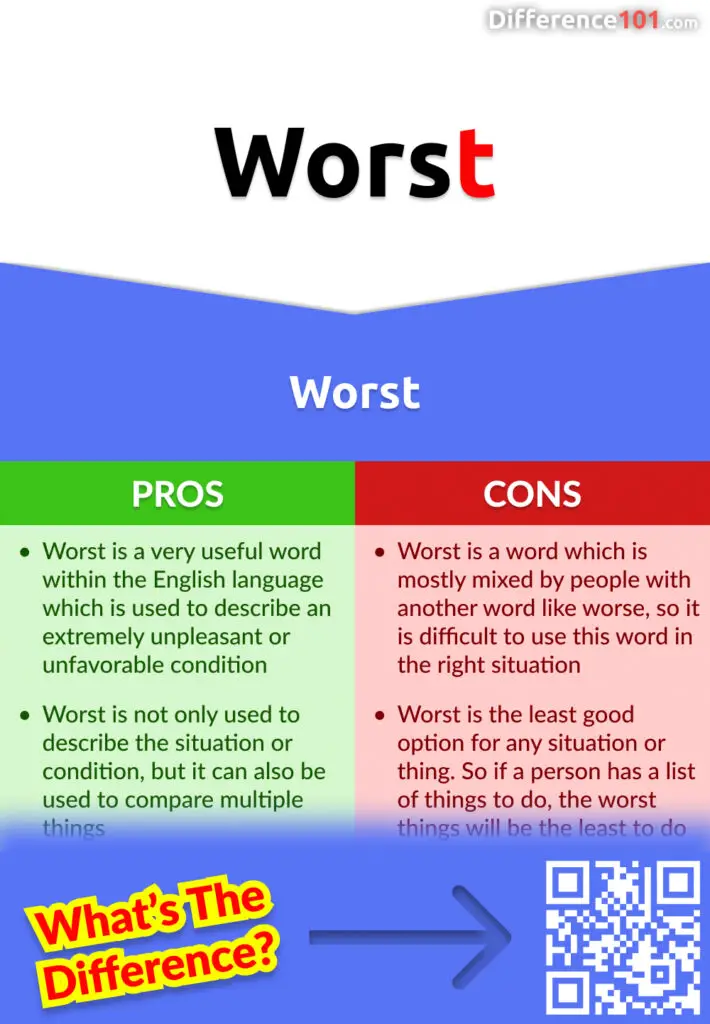What Was The Worst Year For The Steelers Of All-Time?
For fans of the Pittsburgh Steelers, talking about a truly awful season can feel a bit like picking at an old wound. This team, with its rich history and numerous Super Bowl victories, is usually known for its toughness and winning ways. Yet, like any long-standing sports franchise, there have been periods when things just weren't going well at all. So, you know, it makes you wonder, what was the absolute lowest point?
We often think about the "worst" in terms of what's most difficult or, you know, the most unpleasant. When we talk about a football season, that often means a really bad record, sure, but also a feeling of despair, a lack of hope, or just plain poor play across the board. It's about a time when the team truly seemed to be in its most unfavorable condition, a season that was just, well, a complete struggle.
Trying to pinpoint the single "worst" year for the Steelers of all-time is a pretty interesting challenge, actually. There have been a few seasons that were pretty tough to watch, and some that had very few wins. But which one truly stands out as the most inferior, the one that represents the lowest quality or the most extreme degree of badness? That's what we're going to explore, so, you know, let's get into it.
Table of Contents
- Identifying the Lowest Points in Steelers History
- The 1969 Season: A Deep Dive into Despair
- The Coaching Carousel and Roster Woes
- Offensive Struggles and Defensive Lapses
- The Impact of the 1969 Season on the Franchise
- Other Contenders for the "Worst" Title
- What Makes a Season Truly Awful?
- The Silver Lining: How Low Points Lead to Greatness
- Frequently Asked Questions About Steelers' Tough Seasons
Identifying the Lowest Points in Steelers History
When you look back at the Pittsburgh Steelers' long and storied past, you'll find plenty of seasons that weren't exactly stellar. Some years had a handful of wins, others saw promising starts fall apart, and then there are those few that just seemed to be a complete mess from beginning to end. It's almost, you know, like a journey through a very bumpy road. We're talking about periods where the team's performance was, arguably, at its most inferior, really.
Before the Chuck Noll era began to bring consistent success, the Steelers were, in some respects, known more for their struggles than their triumphs. They had many seasons where they barely managed to win a few games. This historical context is pretty important when we try to figure out which year was the absolute bottom, you know? It helps us understand the kind of challenges the team often faced.
So, we're not just looking for a low win total, though that's certainly a big part of it. We're also considering the overall feeling around the team, the talent on the roster, and the general outlook. A season can be bad, but then there's a year that is, basically, the "most bad" – the one that represents the lowest quality of play and the most unfavorable circumstances.
The 1969 Season: A Deep Dive into Despair
When you really dig into the history books, the 1969 Pittsburgh Steelers season stands out as a truly strong candidate for the absolute worst year of all time. This was a season that, honestly, just went wrong in almost every way imaginable. The team finished with a dismal 1-13 record, which is, you know, about as bad as it gets in professional football. It was, in fact, the last year before the NFL-AFL merger officially took hold, and it set the stage for some pretty big changes.
The 1969 Steelers were, apparently, a team that struggled profoundly on both sides of the ball. Their offense couldn't consistently move the chains or score points, and their defense had a very hard time stopping opposing teams. This combination led to a string of losses that just kept piling up, week after week. It was, quite literally, a season where the team's quality of play was at its very lowest.
This particular season represents a time when the Steelers were, in some respects, at their most vulnerable. They weren't just losing games; they were often getting blown out. The feeling around the team and the city was, you know, pretty grim. Fans were, naturally, hoping for better, but each Sunday seemed to bring more disappointment. It was, in short, a truly tough period for anyone who followed the black and gold.
The Coaching Carousel and Roster Woes
Part of what made the 1969 season so incredibly difficult was the situation with the coaching staff and the roster itself. The team had, actually, gone through a few different head coaches in the years leading up to 1969, which can really mess with a team's stability. Bill Austin was the head coach that year, and he was, you know, trying to make things work with a group of players who just weren't quite gelling together.
The roster, at that point, was, basically, a mix of veterans and younger players who hadn't quite found their footing in the league. There weren't many, if any, true standout stars who could carry the team when things got tough. This meant that when one part of the team struggled, there wasn't, very often, another part that could pick up the slack. It was, arguably, a team that was just not built for consistent success at that time.
Player development and recruitment were, in a way, not as robust as they would become in later years. The Steelers hadn't yet hit on the draft picks that would form the core of their future dynasty. So, you know, you had a situation where the talent level was, perhaps, not up to par with the rest of the league, making every game a really uphill battle. This contributed to the feeling of it being a season of the lowest quality.
Offensive Struggles and Defensive Lapses
To truly understand why the 1969 season was so, very, very bad, we need to look at the on-field performance, and it was, frankly, quite grim. The Steelers' offense was, to be honest, one of the least productive in the entire league that year. They struggled immensely to score points, often getting shut out or managing only a single touchdown in a game. This made it very hard to win, obviously.
Their passing game was, you know, inconsistent, and their running game couldn't consistently gain significant yardage. Quarterbacks like Dick Shiner and Terry Hanratty had a tough time finding open receivers and avoiding turnovers. The offensive line, in some respects, also had its struggles, making it hard for any player to truly shine. It was, in short, a very frustrating experience for anyone watching them try to move the ball.
On the other side of the ball, the defense also had a lot of trouble. They gave up a lot of points and a lot of yards to opposing teams. It seemed like, pretty much, every week, opponents were able to march down the field with relative ease. This put even more pressure on an already struggling offense. So, you know, when both sides of the ball are performing at their most inferior, the results are, naturally, going to be pretty awful.
The Impact of the 1969 Season on the Franchise
While the 1969 season was, without a doubt, a period of immense struggle and, you know, pretty significant disappointment for the Steelers, it also inadvertently set the stage for something truly remarkable. This was the year that, basically, led directly to the Steelers securing the first overall pick in the 1970 NFL Draft. And that pick, as many fans know, changed everything.
With that top pick, the Steelers selected a young quarterback from Louisiana Tech named Terry Bradshaw. Bradshaw, of course, would go on to become a Hall of Fame quarterback and lead the Steelers to four Super Bowl championships in the 1970s. So, you know, in a strange twist of fate, the absolute lowest point for the franchise paved the way for its greatest triumphs. It's almost like a necessary evil, in a way.
This period also saw the arrival of legendary coach Chuck Noll, who took over the team in 1969. While his first year was, admittedly, a tough one, that season allowed him to truly assess the roster and begin building the foundation for a winning culture. He was able to bring in new talent and instill a discipline that had, perhaps, been lacking. So, you know, even the most unfavorable conditions can, sometimes, lead to positive changes down the road.
Other Contenders for the "Worst" Title
While 1969 stands out pretty clearly as the absolute nadir, it's worth, you know, looking at a couple of other seasons that were also pretty rough for the Steelers. For instance, the 1941 team also finished with a 1-9-1 record, which is, obviously, a very poor showing. That was, in fact, a much earlier era of professional football, with different dynamics and fewer games played, but it was still a truly tough season.
Then there's the 1988 season, which saw the Steelers finish with a 5-11 record. While not as bad as 1-13, this year was particularly disappointing because it came after a period where fans had grown accustomed to more competitive teams. It was, you know, a season that felt like a significant step backward, especially given the talent that was, arguably, still on the roster. The team just couldn't seem to get things going consistently.
Another one that comes to mind for some fans is the 1989 season, also 5-11, which started with two absolutely brutal losses by a combined score of 92-10. That was, quite literally, a historically bad start, and it set a very negative tone for the entire year. Even though they improved slightly as the season went on, that initial performance was, you know, a pretty clear sign of a team that was in a very unfavorable condition at that moment.
What Makes a Season Truly Awful?
When we talk about what makes a season the "worst," it's not just about the win-loss record, though that's a huge part of it. It's also about the context, you know, the expectations going into the year, and the overall feeling of the team. A season can be bad, but then there's a year that is, basically, the "most bad" – the one that represents the lowest quality of play and the most unfavorable circumstances, as we discussed earlier.
For a season to be truly awful, it often involves a combination of factors. This might include, for instance, a lack of talent across the roster, poor coaching decisions, significant injuries to key players, or just a general sense of disarray within the organization. When all these things come together, it creates a situation where the team is, in short, performing at its most inferior, both on and off the field.
It's also about the emotional toll on the fans. Watching your team consistently struggle, week after week, with little hope for improvement, can be, you know, pretty draining. The "worst" year isn't just a statistical anomaly; it's a period that leaves a lasting impression of disappointment and, perhaps, even a bit of despair. It's when the team is, very, very clearly, at its lowest point.
The Silver Lining: How Low Points Lead to Greatness
Interestingly enough, even the "worst" years can, you know, have a bit of a silver lining. As we saw with the 1969 Steelers, a truly terrible season can sometimes be the catalyst for significant change and, ultimately, future success. It can force an organization to take a hard look at itself, make tough decisions, and embark on a new path. It's almost like hitting rock bottom can be, in a way, a necessary step for rebuilding.
For the Steelers, that 1-13 season led directly to the draft pick that brought Terry Bradshaw to Pittsburgh, and it solidified Chuck Noll's position as the coach who would rebuild the team. It was a clear signal that, you know, fundamental changes were needed, and the organization responded by making those changes. So, sometimes, the most unfavorable condition can, actually, spark the greatest improvements.
It's a reminder that even in the most difficult times, there can be lessons learned and foundations laid for future triumphs. The "worst" year isn't just a blot on the record; it's a chapter in the team's story that, in a way, highlights the resilience and the eventual comeback. It shows how even when things are at their most inferior, there's always a chance to turn things around and, you know, build something great. Learn more about Steelers history on our site, and link to this page Steelers team stats.
Frequently Asked Questions About Steelers' Tough Seasons
Q: What was the Steelers' worst losing streak?
A: The Steelers have had a few long losing streaks in their history. In 1969, during that very tough season, they had a streak of 13 consecutive losses after winning their first game. That was, you know, a pretty long stretch of really difficult games for the team and its fans.
Q: How many times have the Steelers finished last in their division?
A: The Steelers have finished last in their division a number of times throughout their history, especially in the pre-Noll era. For instance, in that 1969 season, they were, obviously, at the very bottom of their division. They've had other seasons where they've ended up in that spot, too, particularly when the team was going through a rebuilding phase or, you know, just having a really rough year.
Q: Did the Steelers ever have a winless season?
A: No, the Pittsburgh Steelers have never had a completely winless season in their history. While they've had seasons with very few wins, like that 1-13 record in 1969, they've always managed to get at least one victory. So, you know, they've avoided that particular distinction, which is, basically, a small comfort in those truly tough years.

Worse vs. Worst: 7 Key Differences, Pros & Cons, Examples | Difference 101

The Top 5 Worst Fast Food Sandwich Chain Restaurants in America

Worst Cooks in America - Rotten Tomatoes